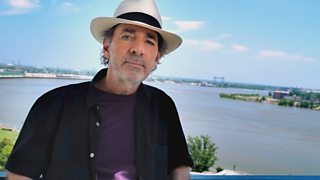Mary Anne Hobbs picks 10 great music documentaries

6 Music weekend breakfast show presenter Mary Anne Hobbs started her career as a music journalist before becoming a radio DJ. She presented shows at XFM then BBC Radio 1, where her diverse tastes lead her to both present The Rock Show and play a vital role in bringing dubstep to a wider audience. As a vociferous champion of new and old music (and presenter of Radio 4 documentary The Tale of Jimmy Scott), who better to select 10 of the very best music documentaries from Radio 4 for Seriously…?
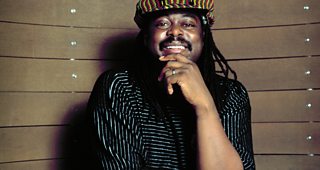
1. A Love Supreme: 50 Years On
Mary Anne says: "Courtney Pine gathers jazz saxophonists Nat Birchall, Finn Peters and Jason Yarde to explore John Coltrane’s masterpiece A Love Supreme on its 50th anniversary. The musicians visit Gaumont State Theatre in Kilburn, where Coltrane played in 1961, to talk together about the majesty and the minimalism, the spiritual and political context of the most influential and enduring jazz album ever recorded, in one day, on 9 December 1964."
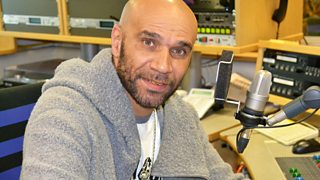
2. Goldie the Alchemist
Mary Anne says: "It’s so moving to hear Goldie identify with music as ‘mother’ in his life. Goldie was put into care at the age of three, and in this programme he explains how art and music saved him from the brutality of the system and the alienation he felt as a child. Goldie is candid about the tantrums, the mistakes, the chaos of his life, and he’s generous about those who helped him channel his anger into music that would change the electronic landscape forever."
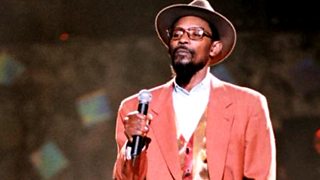
3. Dread, Beat an’ Blood
Mary Anne says: "Linton Kwesi Johnson began writing poetry and became an activist in his teens. For the host of this programme, Benjamin Zephaniah, Linton communicated the black British experience as it had never been heard before. We learn about the political and social climate refracted through Linton’s seminal debut album of 1978, Dread, Beat an’ Blood, and the influence of Louise Bennett-Coverley, The Last Poets, and Franz Fanon the philosopher who spoke about the internalisation of oppression."

4. Kraftwerk: We Are the Robots
May Anne says: "The writer Paul Morley says that Kraftwerk compressed all the best ideas of 1970s modern Germany into pop music, and he’s absolutely right. As we journey through the story of their sound with host Marc Riley, we also learn that they were some of the funniest and most eccentric musicians of their generation. Did you know that Kraftwerk would cut the wires of speakers in a public place if they felt the music being piped was ugly?"
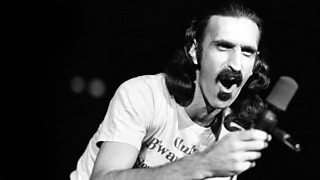
5. Freak Out! The Frank Zappa Story
Mary Anne says: "Germaine Greer hosts a programme about one of her heroes Frank Zappa. We learn that Frank’s father made chemical weapons and he moved his young family around constantly. A feeling of being an outsider as a child was infused in the 60 or so albums that Zappa made in his lifetime. He was self-taught, fearless, outspoken and wildly creative. His guitarist Steve Vai speaks about Frank’s wish to bring the musicians he worked with, as well as himself, to the very limit of potential."
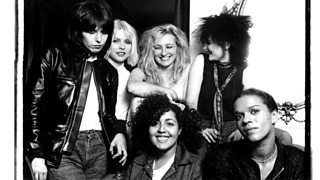
6. Punk Heaven for Little Girls
Mary Anne says: "It’s shocking to discover that Siouxsie Sioux was punched in the face, and members of The Slits were beaten-up and stabbed in the street, simply because they were punks. These are first hand accounts from Sioux and The Slits’ Viv Albertine, in a programme that explores the way in which the punk movement empowered women and girls who were audacious enough to kick against the pricks and the endemic sexism of the 1970s."

7. The Art of the Loop
Mary Anne Hobbs says: "Sit down beside Matthew Herbert, the ingenious electronic music maker, in his studios in Kent. He’ll show you many examples of beautiful musical patterns, in birdsong, in ancient religious and classical composition, in the BBC Radiophonic Workshop’s tape loops. But, asks Matthew, is contemporary musical experimentation frequently stunted, because the brain is too easily seduced by familiar patterns?"
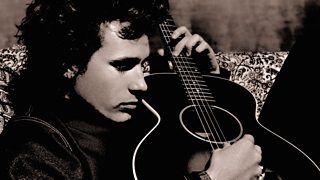
8. The Grace of Jeff Buckley
Mary Anne says: "This programme centres on a short trip that Jeff Buckley made to the UK in 1994. We hear stories of a tender but troubled soul, with shadowy unresolved issues from childhood haunting him, from his manager, agent, photographer and driver. We also get a taste of his first BBC session for the local London station GLR, which he kicks out in a rage. It gives us a measure of just how gifted he really was, and what a tragedy it was to lose him in the Mississippi River aged just 30."
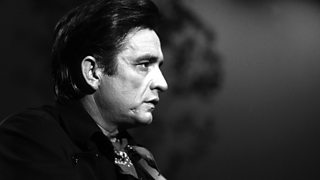
9. Johnny Cash of Easter Cash
Mary Anne says: "Why did Johnny Cash use the name ‘Malcolm’ when he checked into hospital? The reason, says his daughter Roseanne, is that the Cash family are descended from King Malcolm IV of Scotland. This programme documents Johnny’s search for his Scottish roots and the extraordinary impact that ‘the Man in Black’ had on the local community when he descended upon Falkland Palace in Fife to film a Christmas special for American TV."
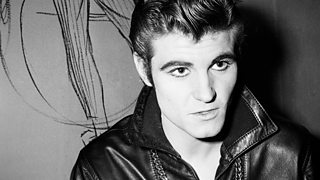
10. Ziggy Stardust Came From Isleworth
Mary Anne says: "The greatest of all David Bowie’s characters was Ziggy Stardust, and if you’ve ever wondered where Bowie found inspiration for Ziggy and his demise, listen to this programme. Host Martyn Day examines the extraordinary career of Vince Taylor, a great mover with terrible voice, who recorded his 1959 hit Brand New Cadillac in just 10 minutes. Vince was so hot in France that there were riots at his gigs, but after he took acid at a party, things went horribly wrong…"
Mary Anne Hobbs presents...
-
![]()
The Tale of Jimmy Scott
The story of jazz singer Jimmy Scott, one of the 20th Century's most overlooked vocalists.
More from Seriously...
-
![]()
Seven Lyrics to Use in Conversation Today
These song lines have become common parlance.
-
![]()
Five Women Who Wrote Rock
These writers helped define rock journalism in the 1960s.
-
![]()
Neil Innes on the Bonzo Dog Doo-Dah Band
The band member recalls the anarchistic joy of a truly unique group.
-
![]()
The Recovering Addicts Who Inspired Trainspotting
The team of recovering addicts who made their mark on cinematic history.
-
![]()
Mao's Little Red Book Goes West
David Aaronovitch on how an Eastern political tract became a Western icon.
-
![]()
David Bowie in his Own Words
David Bowie's interviews reveal his humour, passion and determination to succeed.
-
![]()
Gavin Esler on The Good Goering
Did Nazi leader Hermann Goering have a brother who saved innocent lives from the Holocaust?
-
![]()
10 Women Who Changed Sci-Fi
A selection of great female authors who have radically altered the genre.
-
![]()
Meet the Burlesque Legends
Mat Fraser meets the former striptease stars back on the stage in their 70s and 80s.
-
![]()
Piers Plowright's Picks
The legendary radio maker recommends seven great documentaries for Seriously...
-
![]()
Neil Gaiman's Orphee
A poetic retelling of the Orpheus myth, from the celebrated writer Neil Gaiman.
-
![]()
Meeting Music's Nostradamus
An aspiring singer-songwriter meets the man who predicted the demise of the music industry decades ago.
-
![]()
The Seriously Hard Quiz
What have you learned from our documentaries? Try our fiendishly difficult quiz...
-
![]()
The Draw of War: Walt Disney and World War Two
Kellie Redmond explores Disney's fascinating contribution to the war effort.
-
![]()
Harry Shearer on New Orleans
The Simpsons star, satirist and actor reflects on the flood that devastated his home town of New Orleans.
-
![]()
Why We’re Hung Up on the Hang
Seven reasons to love the modern melodic drum that creates a haunting tone.
-
![]()
Philip Hoare: CSI Whale
The award-winning writer on porpoise dissections, stranded whales and beached dolphins.















